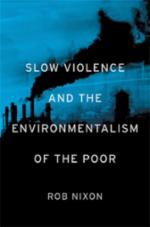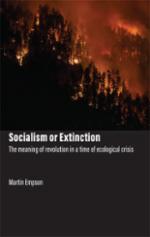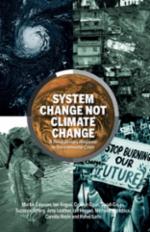"This is a fine book, disturbing and revealing in content, and worthy of lengthy study." -- Jules Pretty, Times Higher Education, 15th Sept 2011
"The work is groundbreaking in its call to reconsider our approach to the slow rhythm of time in the very concrete realms of environmental health and social justice, as well as its investigation of both the power and challenges inherent in creative representation...Slow Violence and the Environmentalism of the Poor challenges readers to new modes of thinking through grave realities. In so doing, it makes a fundamental contribution to contemporary debates." -- Monica Seger, World Literature Today, 1st July 2012
"The previously published sections of Slow Violence and the Environmentalism of the Poor placed Nixon in the vanguard of a movement to make ecocriticism and environmentalism more attuned to imperialism (past and present), to related global injustices, and to postcolonial literatures. The book itself ensures his position among the most prominent voices of what has come to be known as postcolonial ecocriticism, part of a larger effort to open "up paths, inside the academy and beyond, to more diverse accommodations of what counts as environmental." Yet, even by the standards of this field, Slow Violence is impressively interdisciplinary and activist. Not only does it draw extensively on environmental history, the social sciences, and various kinds of journalism, it also offers keen historical and sociological insight into pressing contemporary issues. Slow Violence will be engaging and accessible to all those working in academia and beyond who are interested in social justice and its relationship with environmental change. In fact, in his role as a public intellectual, in his clear and elegant prose, and in his commitment to anti-imperial scholarship and activism, Nixon effectively follows in the footsteps of Edward Said, even as he moves to address a blind spot in Said's writing and (until relatively recently) in postcolonial literary studies: the significance of slow environmental violence for understanding imperial relationships and the often repressed ways they have shaped and continue to shape the globe." -- Byron Caminero-Santangelo, Research in African Literatures, 5th May 2012
"I thought the book was worth buying for its introduction alone, which presented the idea of slow violence and the practical and political challenges behind fighting it. The chapters that follow are a gallery of horrors: one scene of violence after another, each seemingly insurmountable and somehow less surprising than the last. Yet, remarkably, this is the least depressing environmental book I've read in years. By presenting these disasters alongside the writer-activists working to counteract them, Nixon leaves no room for despair. Instead I'm left buoyed, hopeful and--after 300 pages--impatient to learn more." -- Blair Braverman Waging, Nonviolence, 4th April 2012
"Slow Violence will, I think, become what it aspires to be: a foundational text of an "environmental humanities" that also conjugates ecologism, anti-imperialism and anti-capitalism, to be achieved through a "creative alliance" between environmental and postcolonial studies, two protagonists accustomed to ignoring each other." --Mary Louise Pratt, Interventions, 6th June 2012
Rob Nixon is Rachel Carson Professor of English, University of Wisconsin-Madison. Among his many books is Dreambirds: The Natural History of a Fantasy. He is a frequent contributor to the New York Times.






